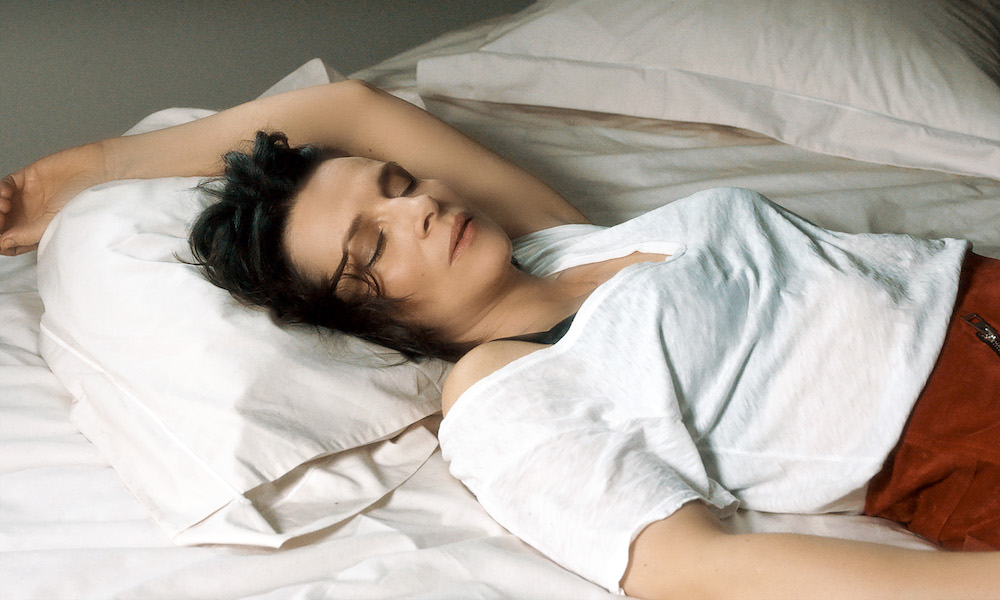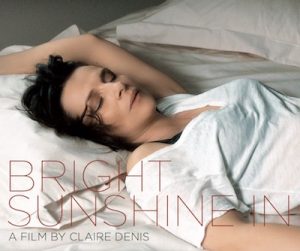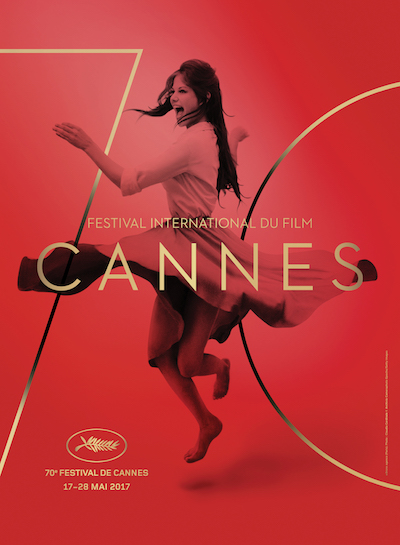Un Beau Soleil Intérieur (Bright Sunshine In)

Opening the Directors’ Fortnight sidebar, Un Beau Soleil Intérieur is a strange, disjointed experience. It trundles along without much cohesiveness, but there are some perceptive moments among the anxious interactions and wordless exchanges. Few love lives are more interesting to contemporary cinema than those of the depressed, wealthy, metropolitan middle class. Director Claire Denis firmly focuses on this never-neglected cadre of the self-absorbed. We get to see pity, aggrandisement and righteousness across several fraught romantic encounters. We rarely see much else.
Juliette Binoche plays Isabelle, an exposed, overwrought artist working her way through a litany of briefly flickering and quickly souring relationships. In an explicit opening scene, we see the rapid denouement of a conventional sex act. As we are affronted by nakedness from the beginning, the characters look somehow more grotesque with their clothes on. Isabelle has a young daughter, who appears once through a car window. She produces acclaimed artwork, and we once see her staple a canvas to the floor. On neither of these aspects do we linger, and Denis instead centres on her protagonist’s search for love or for something at least with depth, with understanding. By marginalising her other lives, the film seeks to methodically unpick her helpless engagements with a series of men. And what a roster this is! They include, in no particular order: bastard, hypocrite, philanderer, coward and pleb. It is a comprehensive topography of male awfulness. No one is likeable – Isabelle’s friend seems reasonable and cheery and she is summarily dismissed within two minutes of being on screen. Binoche’s character soldiers on, seeking either dignity or satisfaction, never both, and the movie does well to depict her quest for fulfilment. Such quests are rarely sentimental. Then, near the end, grand French thespians Valeria Bruni Tedeschi and Gérard Depardieu make seemingly improvised cameos as quarrelling lovers, and the film’s appendix consists of a hilarious seduction scene involving Depardieu’s therapist-cum-psychic. To repeat: strange and disjointed.
Denis co-wrote Un Beau Soleil Intérieur with novelist Christine Angot and some of the dialogue is sharp, but it is difficult to care about these characters. Perhaps that is Denis’s satirical point, and the circuitous conversations, beset by extended awkwardness and grating repetition, invite us to laugh rather than empathise. Binoche is the fulcrum of the film and she gives us the full range: frustration to melancholy, tearfulness to fury. Depression is difficult to depict, but there is a truth to Isabelle’s stubbornness and vulnerability. Eventually, and not unexpectedly, we glimpse a prosaic form of happiness.
Joseph Owen
Un Beau Soleil Intérieur (Bright Sunshine In) does not yet have a UK release date.
Read more of our reviews and interviews from the festival here.
For further information about Cannes Film Festival 2017 visit here.
Watch two clips from Un Beau Soleil Intérieur (Bright Sunshine In) here:

























Facebook
Twitter
Instagram
YouTube
RSS